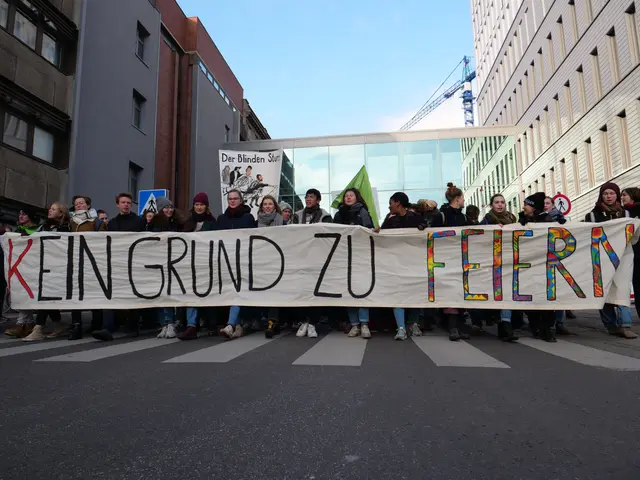Günther Anders' Warning: Are We Being Left Behind by Our Own Creations?
The rapid advancement of technology has brought both convenience and concern. Philosophers like Günther Anders warned about humanity's struggle to keep up with its own creations, a warning that resonates today. Children are increasingly addicted to internet and smartphones, leading to psychological issues. Meanwhile, algorithms control our behavior and economy, reducing humans to mere material, according to critics.
Anders, in his 1950 work 'The Obsolescence of Humans', predicted that humans would fall behind their own technological advancements. Today, we see this in the growing number of selfies taken, which outpaces population growth and even climate change effects. The short attention span of people and the suspension of independent thought further exacerbate this issue.
Tech giants like Google, Amazon, and Microsoft have taken capitalism to a new stage, where humans are mere cogs in the machine. They control our behavior, consumption, and daily lives, often flooding us with advertising, misinformation, and images of extremism. The misuse of the term 'freedom' by far-right groups, employers' associations, and media outlets adds to the complexity of the situation.
As technology continues to advance, it's crucial for society to engage in critical dialogue about its impact on our lives. We must ensure that our technological advancements serve us, not the other way around. The relevance of Anders' work today serves as a reminder that we must strive to keep up with our own creations, or risk being left behind.
Read also:
- American teenagers taking up farming roles previously filled by immigrants, a concept revisited from 1965's labor market shift.
- Weekly affairs in the German Federal Parliament (Bundestag)
- Landslide claims seven lives, injures six individuals while they work to restore a water channel in the northern region of Pakistan
- Escalating conflict in Sudan has prompted the United Nations to announce a critical gender crisis, highlighting the disproportionate impact of the ongoing violence on women and girls.






